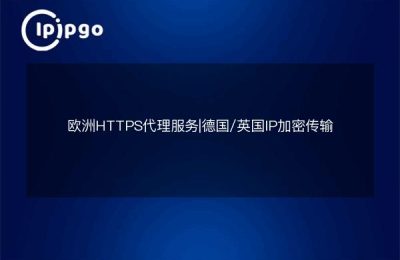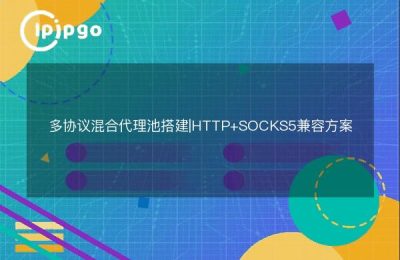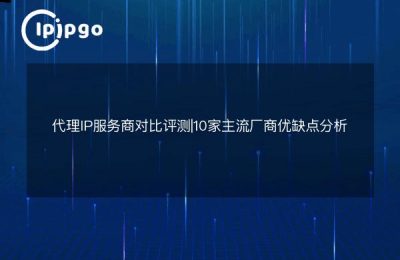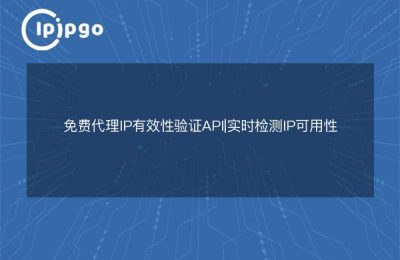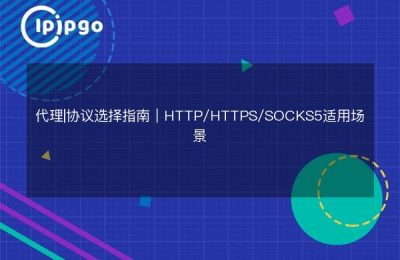
Proxy IP has become the infrastructure for enterprise-level applications in scenarios such as data collection and business monitoring. As a leading proxy service provider in China, ipipgo provides developers with a complete IP management solution through API interfaces. In this article, we will analyze the core points of proxy IP interface development, covering the whole process from interface invocation to quality monitoring.
I. Technical realization of proxy IP acquisition interface
ipipgo's IP acquisition interface supportMillisecond responseThis is a simple HTTP request to get the available proxies. Sample base call:
GET https://api.ipipgo.com/v1/get?type=http&count=10
Authorization: Bearer {your_api_key}
Key Parameter Configuration Recommendations:
| parameters | clarification | recommended value |
|---|---|---|
| type | Agent Agreement Type | http/https/socks5 |
| count | Number of acquisitions | Dynamically adjusted to business concurrency |
| region | geographic area | Country code for cn/us/jp, etc. |
In actual development, it is recommended to choose the type of package in accordance with the characteristics of the business:
- pay-per-use package: suitable for fluctuating crawler scenarios
- Customized IP pool packagesSuitable for surveillance systems that require fixed IP segments
- Exclusive IP package: Suitable for financial data collection with high security requirements
II. Engineering Practices for Agent Validity Verification
The authentication interface of ipipgo usesThree-tier calibration mechanism, ensuring that IP availability is stabilized above 99%. It is recommended that developers embed validation logic in the following links:
1. Validation at initialization: basic connectivity testing before IP warehousing
2. Pre-execution verification: detecting whether an IP is blocked by the target website
3. Timed Loop Authentication: Maintaining a Dynamic Pool of Available IPs
Verify the interface technology implementation:
POST https://api.ipipgo.com/v1/validate
{
"ips": ["1.1.1.1:8080", "2.2.2.2.2:8888"],
"target_url": "https://target-site.com"
}
Returns a description of the parameter:
- status_code: target site response status code
- response_time: milliseconds response time
- success_rate: success rate for the last 1 hour
III. Data-driven optimization using statistics
ipipgo's statistical interface provides multi-dimensional usage analysis to help companies control costs accurately:
| Type of indicator | Dimension of analysis | Optimization Recommendations |
|---|---|---|
| call frequency | Distribution by hour/day/week | Adjustment of IP acquisition policy |
| success rate | By geography/operator | Optimization of regional dispatch |
| response time | Protocol type/time period | Switching Proxy Types |
Get statistical reports via API:
GET https://api.ipipgo.com/v1/stats?period=7d&granularity=4h
IV. Engineering best practices on the ground
Based on ipipgo's customer cases, we summarize three key implementation points:
1. Intelligent Movement Control Program
It is recommended to combine the historical success rate data and dynamically adjust the calling weights of different geographical IPs. An e-commerce customer has improved its data collection efficiency by 40% through this program.
2. Abnormal fusion mechanisms
When 3 consecutive IP requests fail, automatically trigger IP pool refresh and notify the operation and maintenance system, effectively reducing the risk of business interruption
3. Cost containment strategies
By utilizing ipipgo's usage forecasting interface and setting elastic quotas based on the characteristics of the business cycle, a news aggregation platform was able to reduce its IP usage costs by 281 TP3T.
V. Solutions to common problems
Q: How do you balance IP quality and cost?
A: It is recommended to use ipipgo'sSmart Mixed Dialing PackageThe system will automatically assign premium IPs for core business and regular IPs for auxiliary collection.
Q: How to avoid IP blocking in high concurrency scenarios?
A: In conjunction with ipipgo'sConcurrent Control InterfaceThe request frequency threshold for a single IP can be set to achieve traffic camouflage with the request header randomization function.
Q: How do you ensure long-term stable access?
A: We recommend using ipipgo'sEnterprise Class Dedicated Line ServiceProvide exclusive API gateway and SLA guarantee, support 7×24 hours technical response.
Through the rational use of ipipgo's API interface combination, developers can quickly build a stable and reliable proxy IP management system. The platform providesdeveloper portalContaining complete code samples and debugging tools to support rapid access and problem troubleshooting, more than 2,000 companies have already realized business upgrades through its API.

